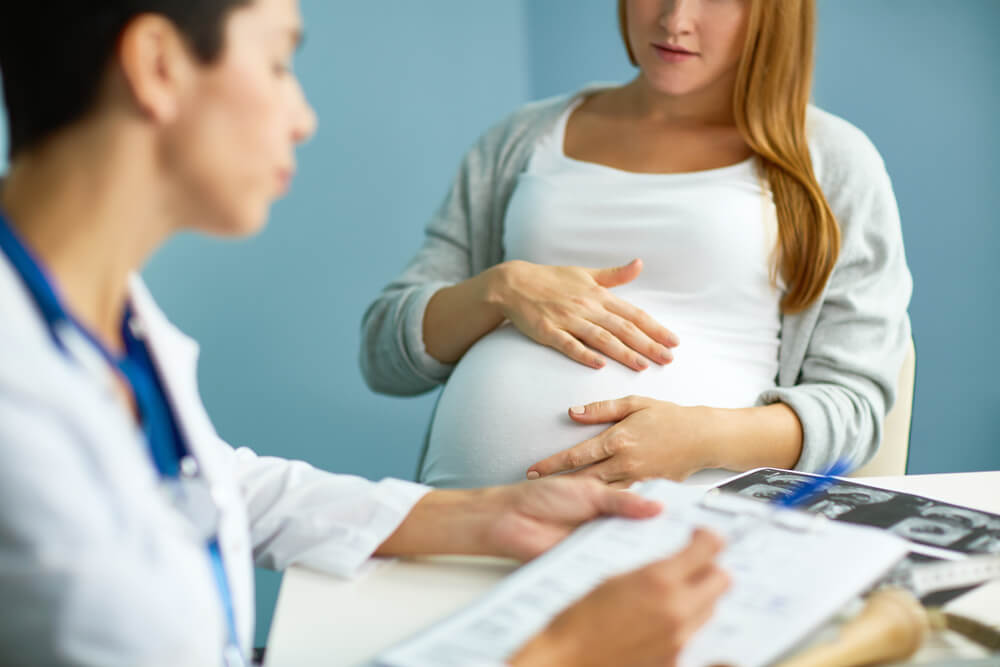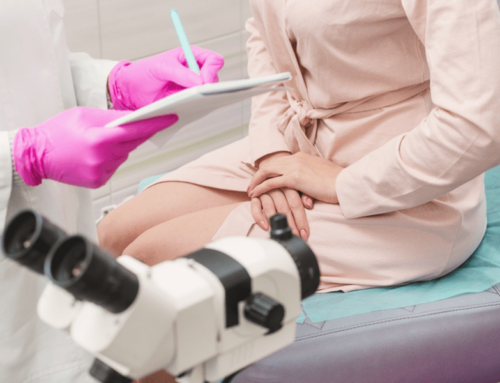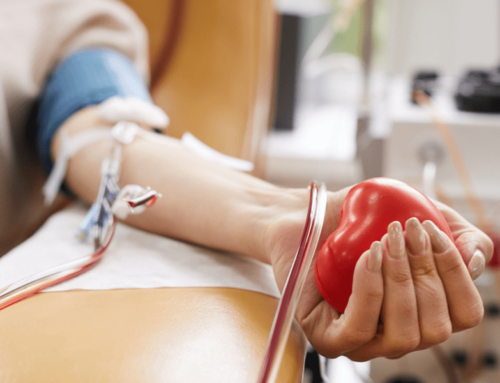What is Cell Free DNA?
You may be wondering, “What is cell free DNA?” In medical terms, cell free DNA (or cfdna) refers to all non-encapsulated DNA in the bloodstream. Cell free fetal DNA is small pieces of DNA from cells in the placenta, shed into the mother’s bloodstream when they rupture. Though cell free DNA can sometimes be detected as early as six weeks into a pregnancy, medical professionals recommend waiting until the tenth week of pregnancy before undergoing a cell free DNA test to ensure that levels are sufficient to show up on the test.
Cell Free DNA Test
Prenatal screening has significantly improved and changed in the past decade thanks to a new test in the medical field called the cell free DNA test, which is truly a breakthrough in prenatal screening! The cfdna tests are non-invasive tests that analyze fetal DNA from a mother’s blood sample. What does cell free DNA test for, you might ask? By testing cfdna, doctors can more easily and efficiently screen for particular chromosomal abnormalities in a fetus.
What Does Cell Free DNA Test For?

Prenatal cfdna tests are non-invasive testing measures that analyze the cell free DNA of a pregnant person’s blood, as it contains both maternal and fetal DNA. The chromosomal abnormalities that may be detected include Trisomy, which is three chromosome copies instead of what is typically two, Monosomy, which is the absence of one of the two chromosome copies. Finally, Microdeletion is when there is a small part of a chromosome missing.
These are some of the most common chromosome disorders:
- Downs Syndrome (Trisomy 21)Down’s Syndrome is caused by an additional copy of chromosome 21 and is newborns’ most common chromosome disorder. This may point to future learning disabilities, whether mild or moderate, and other developmental impairments.
- Edward’s Syndrome (Trisomy 18)Edward’s Syndrome is due to an extra copy of chromosome 18 and is less common than Downs in newborns. Edward’s Syndrome is more severe. Many newborns with this chromosome disorder do not live past age one.
- Patau syndrome (Trisomy 13)Patau Syndrome is caused by an extra copy of chromosome 13. It is even rarer, but most newborns do not live past one year of age, similar to Edward’s syndrome.
- Alterations in X and Y sex chromosomes are other disorders that are less severe than trisomies.Depending on what you wish to test for and whether your pregnancy is at risk with one or multiple chromosomal abnormalities, your doctor can help you determine and ultimately recommend which screenings and tests are right for you and your needs. We understand that choosing to undergo a screening and waiting for results can cause stress and anxiety, and that is normal! Your doctor and/or genetic counselor are here to support you through this process.
When is a Cell Free DNA Test Recommended?
Prenatal cfdna screening is recommended when you are at least ten weeks pregnant, and you have received adequate counseling regarding all of your options. The benefits and limits of cell free DNA screening and diagnostic testing in the first or second trimester vary from patient to patient. After consulting your doctor or a genetic counselor, you can be better equipped to decide whether a cell free DNA test is right for you, if it will benefit you, and how you can expect to interpret your results.
While first and second-trimester diagnostic testing options are available, such as a quad screen, cell free DNA screening can be more specific and sensitive than traditional screening options. It is also more helpful for women who may not want to undergo invasive testing with a slight risk of miscarriage, like CVS, chorionic villus sampling, or amniocentesis. It is important to know that cfdna tests are less effective under the following circumstances:
- If you are less than ten weeks pregnant
- If you are taking certain medications, like blood thinners
- If you are pregnant as a gestational carrier
- If you become pregnant through egg donation
- If you are pregnant with multiples, such as twins or triplets
- If you have a BMI (body mass index) of 30 or more
How to Prepare for your Cell Free DNA Screening
If you are interested in undergoing prenatal cfdna testing, we recommend that you speak to your provider and first check to see if your health insurance will cover the cost of the testing. Before the screening, your OBGYN or genetic counselor will go through all of the possible outcomes of your test and what the results could mean for you and your baby. This is the time to ask any questions or raise any concerns about the screening process.
What to Expect During a Cell Free DNA Test
During the cfdna screening, DNA is extracted from both a mother and their fetus from a maternal blood sample. This sample is then screened for certain chromosomes that may signify developmental health conditions such as Down’s syndrome (trisomy 21) or another disorder caused by a trisomy, such as a trisomy 13 or trisomy 18. The cell free DNA test can also provide you and your doctor information about fetal sex.
Some cfdna tests may additionally screen for increased chances of:
- Trisomy 16
- Trisomy 22
- Triploidy
- Aneuploidy of sex chromosomes
- Chromosomal deletion disorders, such as microdeletion syndrome
- Single-gene disorders
What to Expect After Your Screening
During prenatal cfdna screenings, a blood sample is taken from the mother and sent off to a lab in which the sample is analyzed. The lab will look out for higher ratios of chromosome 21 sequences, which may point to conditions like Downs syndrome. Results usually come back within seven days of the initial test. The way the results are reported depends on the lab, meaning your results could read as follows:
- Positive or negative
- High risk or low risk of abnormality
- Probability of abnormality
Suppose your cfdna test was to come back, noting that there is an increased risk of a chromosomal abnormality. In that case, your doctor may recommend CVS or amniocentesis to confirm or deny the test’s diagnosis. If the fetus is diagnosed with a chromosomal abnormality, it is important to remember that these findings cannot be reversed. Your doctor will be there to support you through the difficult decision of whether you will want to continue your pregnancy or what steps you will have to take when caring for your baby during pregnancy and after their delivery.
Suppose you have predisposing risk factors that could be suggestive of your baby having an increased risk of a chromosomal or genetic condition. In that case, procedures such as amniocentesis or CVS are an option regardless of your cell free DNA results.
Cell Free DNA Screening Risk Factors

Rarely, between 1-5% of prenatal cfdna tests can be ineffective and do not come back with results due to not having enough DNA sampled to conduct the test. Additionally, a negative test is not conclusive in determining whether your pregnancy is unaffected, as cfdna tests do not screen for all genetic and chromosomal conditions. On a positive note, a prenatal cell free DNA test poses no physical risk to you or your baby. It can even more positively help you avoid more invasive testing, monitoring, or treatments during your pregnancy.
Choosing Trogolo for Your Care
Are you a high-risk carrier? Do you want to find the best comprehensive and compassionate OB GYN care that Northeast Florida has to offer? At Trogolo Obstetrics and Gynecology in Jacksonville, Florida, we provide services to help manage high-risk pregnancies and various conditions or complications that may arise during pregnancy. Here are some things our practice is prepared to manage and treat:
- Gestational Diabetes
- Gestational Hypertension
- Blood Disorders
- Advanced Maternal Age
- Placenta Previa
- Multiples Gestations
- Preterm Labor
- Preeclampsia
- And more!
Additional services offered by our obstetricians include:
- Obstetrical Ultrasounds
- Genetic Screening
- Cord Blood Banking
- Pre-conceptual Counseling
- Infertility Counseling and Management
Trogolo Obstetrics and Gynecology is dedicated to helping the women of Jacksonville, Florida, have healthy pregnancies and deliveries. Give us a call or visit our website today to learn more about us, the services we offer, and how we can help you! Whether you are already pregnant or are thinking of becoming pregnant, it is never too early to look for quality care, and it is never too late to find the quality care you deserve.





